|
|
 | |||
| ||||
|
The Spring
Festival falls on the 1st day of the 1st lunar month, often one month later than
the Gregorian calendar. It originated in the Shang Dynasty (c. 1600 BC-c. 1100
BC) from the people's sacrifice to gods and ancestors at the end of an old year
and the beginning of a new one.
Strictly
speaking, the Spring Festival starts every year in the early days of the 12th
lunar month and will last till the mid 1st lunar month of the next year. Of
them, the most important days are Spring Festival Eve and the first three days.
The Chinese government now stipulates people have seven days off for the Chinese
Lunar New Year.
Many customs
accompany the Spring Festival. Some are still followed today, but others have
weakened.
The 23rd day of
the 12th lunar month is called Preliminary Eve. At this time, people offer
sacrifice to the kitchen god. Now however, most families make delicious food to
enjoy themselves.
After the
Preliminary Eve, people begin preparing for the coming New Year. This is called
"Seeing the New Year in".
Store owners are
busy then as everybody goes out to purchase necessities for the New Year.
Materials not only include edible oil, rice, flour, chicken, duck, fish and
meat, but also fruit, candies and kinds of nuts. What's more, various
decorations, new clothes and shoes for the children as well as gifts for the
elderly, friends and relatives, are all on the list of purchasing.
Before the New
Year comes, the people completely clean the indoors and outdoors of their homes
as well as their clothes, bedclothes and all their utensils.
Then people
begin decorating their clean rooms featuring an atmosphere of rejoicing and
festivity. All the door panels will be pasted with Spring Festival couplets,
highlighting Chinese calligraphy with black characters on red paper. The content
varies from house owners' wishes for a bright future to good luck for the New
Year. Also, pictures of the god of doors and wealth will be posted on front
doors to ward off evil spirits and welcome peace and abundance.
People attach
great importance to Spring Festival Eve. At that time, all family members eat
dinner together. The meal is more luxurious than usual. Dishes such as chicken,
fish and bean curd cannot be excluded, for in Chinese, their pronunciations,
respectively "ji", "yu" and "doufu," mean auspiciousness,
abundance and richness. After the dinner, the whole family will sit together,
chatting and watching TV. In recent years, the Spring Festival party broadcast
on China Central Television Station (CCTV) is essential entertainment for the
Chinese both at home and abroad. According to custom, each family will stay up
to see the New Year in.
aking up on New Year, everybody dresses up. First they extend greetings to their parents. Then each child will get money as a New Year gift, wrapped up in red paper. People in northern China will eat jiaozi, or dumplings, for breakfast, as they think "jiaozi" in sound means "bidding farewell to the old and ushering in the new". Also, the shape of the dumpling is like gold ingot from ancient China. So people eat them and wish for money and treasure.
Southern Chinese
eat niangao (New Year cake made of glutinous rice flour) on this
occasion, because as a homophone, niangao means "higher and higher, one
year after another." The first five days after the Spring Festival are a good
time for relatives, friends, and classmates as well as colleagues to exchange
greetings, gifts and chat leisurely.
The lively
atmosphere not only fills every household, but permeates to streets and lanes. A
series of activities such as lion dancing, dragon lantern dancing, lantern
festivals and temple fairs will be held for days. The Spring Festival then comes
to an end when the Lantern Festival is finished.
China has 56
ethnic groups. Minorities celebrate their Spring Festival almost the same day as
the Han people, and they have different customs.
|
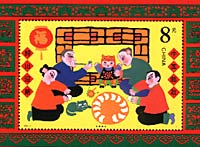
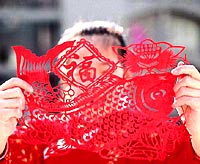
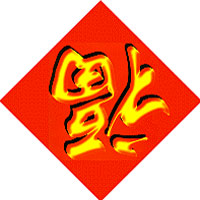
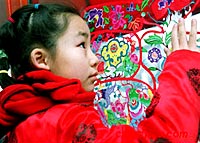
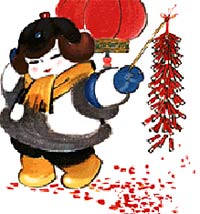
ไม่มีความคิดเห็น:
แสดงความคิดเห็น